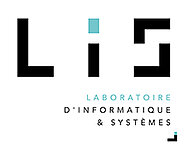ULP COCHLEA project will permit, by mimicry, the design of smarter, smaller, cheaper and passive bioinspired acoustic sensors for long-duration in-situ monitoring and analysis of marine environment and related maritime activities especially in Mediterranean Sea. The project will enable the development of cognitive and predictive models for understanding submarine life, collection of open data, accessibility of high-quality natural signals for long spatial and temporal scales. This will enable the design of incentive policies for environmental sustainability, tracking their effectiveness over time and providing intelligible options for adjusting them.
This project aims to develop disruptive ocean passive acoustic sensors. Fully bioinspired, ultra-low power, smart and compact, they can monitor in-situ for extended time periods while consuming less than 10 milliwatts (that is, a hundred times better than current technology).
The sensor comes from the design of an ultra-low-power (ULP) analog cochlea operating preliminary data processing (analog acoustics signals converted into spike trains), judiciously associated with ULP processors that implement spiking neural networks. These sensors are almost “invisible” and feature a low environmental footprint. They analyse data off the cloud, while being robust because fabricated in (low cost) standard CMOS technology. They can cover a large area and are maintenance-free (long battery lifetime or powered by energy harvesting).
This technology strongly contributes to sustainable development through accurate monitoring of the submarine ecosystem: following exposure to the noise of human activities, to pollution or ocean warming. This is made possible through the use of highly tunable ULP AI processor, which process the natural data (spike trains reflecting input acoustic signal features) output by the cochlea(s) to detect, locate, record, analyse, classify and alert acoustic events of interest (presence of cetaceans, boat passages, illegal fishing with explosives).
Ocean is the lifeblood of Earth and its biodiversity is threatened. Global warming, acidification, dead zones ... the ocean is one of the first victims of CO2 emissions, but it also protects us by absorbing it, a vital role that we must take into account in climate policies.The project outcomes will allow the design of incentive policies for environmental sustainability, to track their effectiveness over time and provide options for adjusting them.
The applicative domain is much larger than ocean ecoacoustics and concerns any kind of sounds in sea, air or ground, including bats, birds, crickets, bees, worms underground, even the ascent of sap in the trees for measuring many aspects of our biodiversity et its evolution.
Notably, this research program is based on the interdisciplinary synergy between three distant communities able to develop: ULP analog electronics (CMOS transistors operating in deep subthreshold operation), artificial intelligence (machine learning, spiking neural networks) & ULP AI chips, and bioacoustics/ecoacoustics.
Contact : Philippe.Devienne@univ-lille.fr, Chargé de recherches au CNRS, Lab IRCICA/CRIStAL



